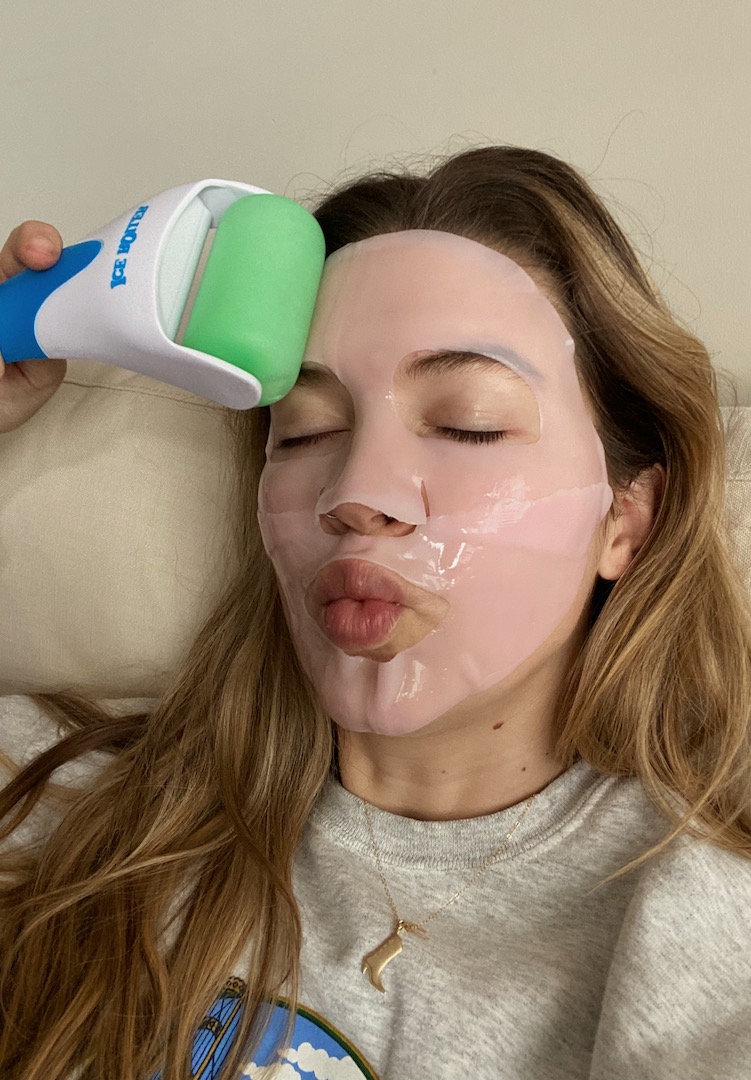I asked a sleep psychiatrist to explain revenge bedtime procrastination
PHOTOGRAPHY BY NICOLE WONG
WORDS BY CHRISTINA KARRAS
Why there might be more to your night owl behaviour than meets the eye.
Ever since a viral TikTok about ‘revenge bedtime procrastination’ started circulating, it’s given a whole new meaning to a bad habit I’ve been harbouring for a long time.
Offered up as a “fun fact” by psychology student Saman Haider, the video offers an explanation for why we often stay up so late, despite our overwhelming feelings of exhaustion and the regret we know we’ll feel the next day.
Read more personal stories from our FJ writers in our Life column.
“Did you guys know that there’s this thing called revenge bedtime procrastination, where people will refuse to sleep because they don’t have much control over their daytime life, so they will sleep very late at night – even if they’re super tired, because they just don’t want that free time to end at night, and they don’t want tomorrow to start,” Haider says in the clip.
Many TikToks have lived in my head rent-free over the past year, but this one felt like a personal epiphany. And with more than 17.5m views and 80,000 comments, sharing the same frustrated sentiment – “this is me and I’ve never felt so understood,” one user wrote – it seems I’m not the only one.
@samanhaiderrwhy is this me every night 🧍🏽♀️#fyp #foryoupage #desi #brown #sleep #psychology♬ original sound – Saman Haider
A self-proclaimed night owl, I find myself doing work well into the early hours of the morning, endlessly scrolling, or telling myself the lie that I’ll watch ‘just one more episode’ before I go to sleep. Hearing that my experience actually had a definition gave me a new perspective on something I had previously dismissed as simply a bad habit, allowing me to reframe it as more of an act of self-sabotage and an extension of my anxiety.
Desperate to understand the inner workings of this seemingly shared experience, I turned to California-based psychiatrist and sleep medicine specialist Dr Nishi Bhopal for more legitimate (sorry TikTok), scientifically-backed answers.
Where did the term originate and is it a real thing?
According to Dr Bhopal, bedtime procrastination was first described in 2014 by researchers in the Netherlands who were looking at how procrastination can affect health-related outcomes. Two years later, the word ‘revenge’ was tagged onto the idea on Chinese social media platforms, with links to burnt-out workers who were attempting to ‘steal back’ their personal time from their employers.
Only coming across it recently in a medical magazine, she suspects the addition of the word ‘revenge’ added an emotional kick that stirred the general public’s interest. “While ‘revenge bedtime procrastination’ specifically hasn’t yet been described in the scientific literature, there are a few studies in the sleep and psychological literature describing bedtime procrastination,” Dr Bhopal says.
And its emergence as a colloquial term during the pandemic isn’t a coincidence. Dr Bhopal says nearly 40 per cent of people around the world have had problems sleeping during the pandemic. It also doesn’t help that there have been no physical boundaries between work hours and personal hours, with most of us rolling out of bed to our desk, and then back again at night.
“Adding to that, working from home is associated with extended work hours and reduced leisure time. This is shown to have had a larger impact on women than men, with women spending more time on household chores and childcare,” she explains.
Why do so many of us do it?
If it makes my fellow night owls feel any better, Dr Bhopal says it’s quite a frequent issue she sees in her patients, with many admitting they delay bedtime because going to sleep means “the next thing they’ll have to do is get up for another day of work”.
“This seems to be more common in my patients who have an evening chronotype [those classed as an ‘evening person’], or are experiencing burnout and are unhappy with their jobs,” she explains.
“The evening hours are usually the only quiet time we have for ourselves, and it can be really tempting to forgo sleep in favour of some ‘me time’. Social media and streaming services are also designed to keep us scrolling, watching, and engaged, so it’s even harder to pull yourself away from that when you’re tired and your defences are down,” she adds.
The irony isn’t lost on me that in retreating to simple comforts of escapism in an attempt to make myself feel better, that I’m actually going to feel worse in the morning. But the main problem with revenge bedtime procrastination is that the attempt to ‘steal back time’ for ourselves leads to a cycle of stealing sleep from ourselves.
It’s merely a false reality that we have more control over our lives at night. And Dr Bhopal warns that consistently delaying your bedtime does have “real negative consequences”. There are obvious side effects, like impaired reaction time and issues with focus, but also long-term health risks that relate to your metabolism and heart issues and it could weaken your immune system.
But how do I stop?
It’s the million-dollar question. Unsurprisingly, Dr Bhopal says creating a consistent, relaxing and enjoyable evening routine is key to training your body and mind to go to sleep. Light a candle, do your 10-step skincare routine or read a book to counteract the impulse to stay up late.
“It’s been suggested that the more daytime stress a person experiences, and the fewer enjoyable activities they experience during the day, the more likely it is that they’ll delay bedtime,” she adds.
“Finding ways to create boundaries with work and alleviate stress during the day – whether taking breaks, going for a walk, listening to music, cultivating a beautiful workspace, doing breathing practices, connecting with a friend or loved one – can prevent you from feeling depleted by the end of the day.”
Be intentional with your time, but flexible when life gets in the way. Give yourself permission to stay up late and sleep in when you need to, but as Dr Bhopal puts it “don’t make it a habit on a regular basis – it’s not worth the expense of your mental and physical health.”
This article was originally published on May 11, 2021.
To learn more about revenge bedtime procrastination and sleep you can watch Dr Nishi Bhopal’s video here or visit her website.










